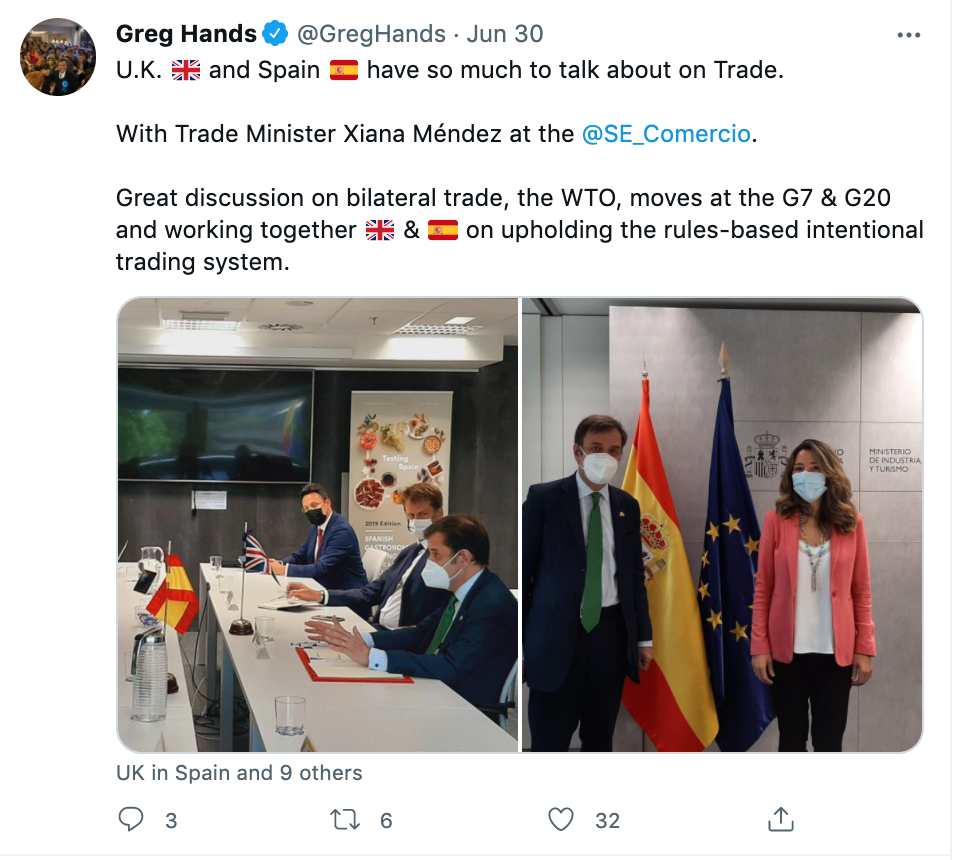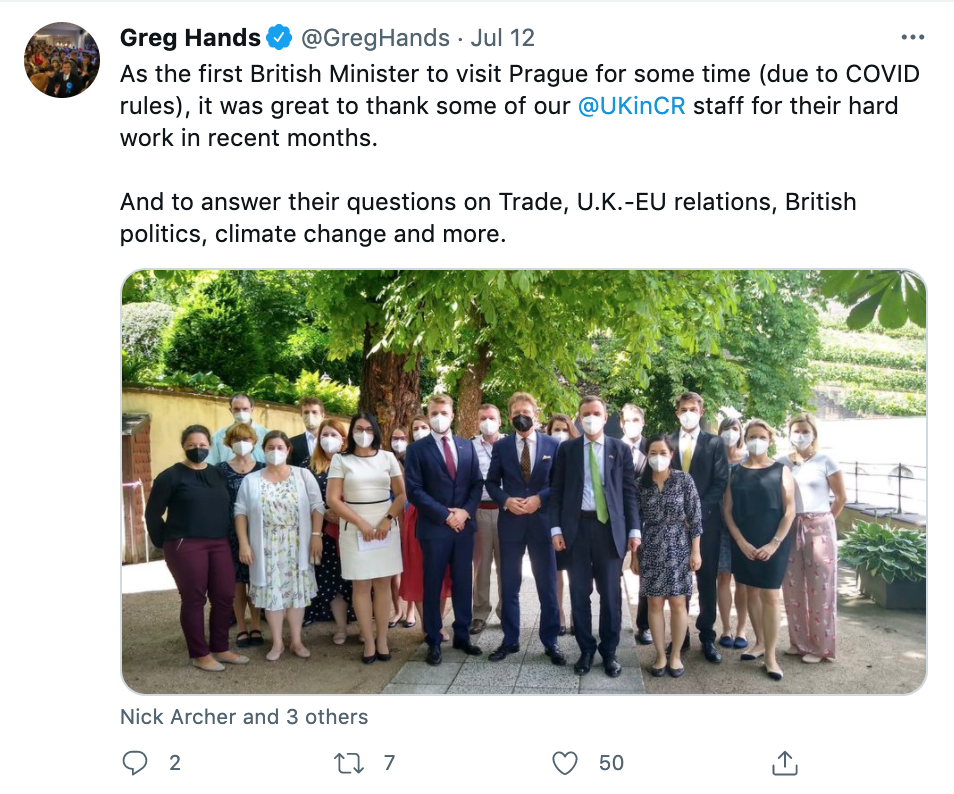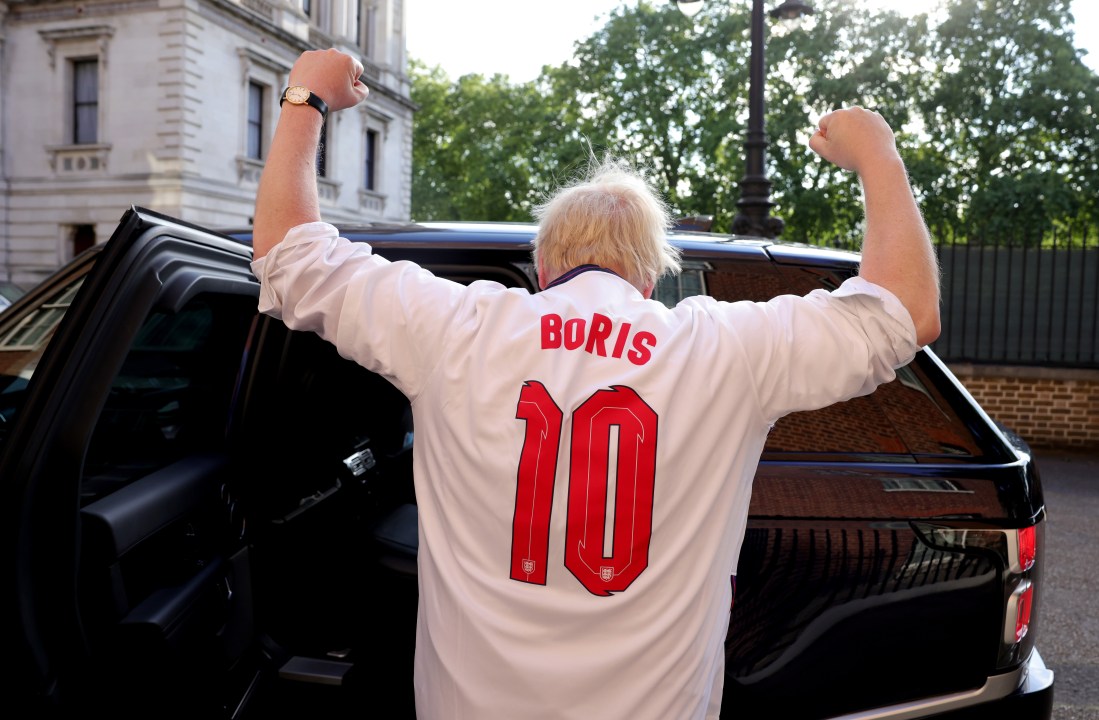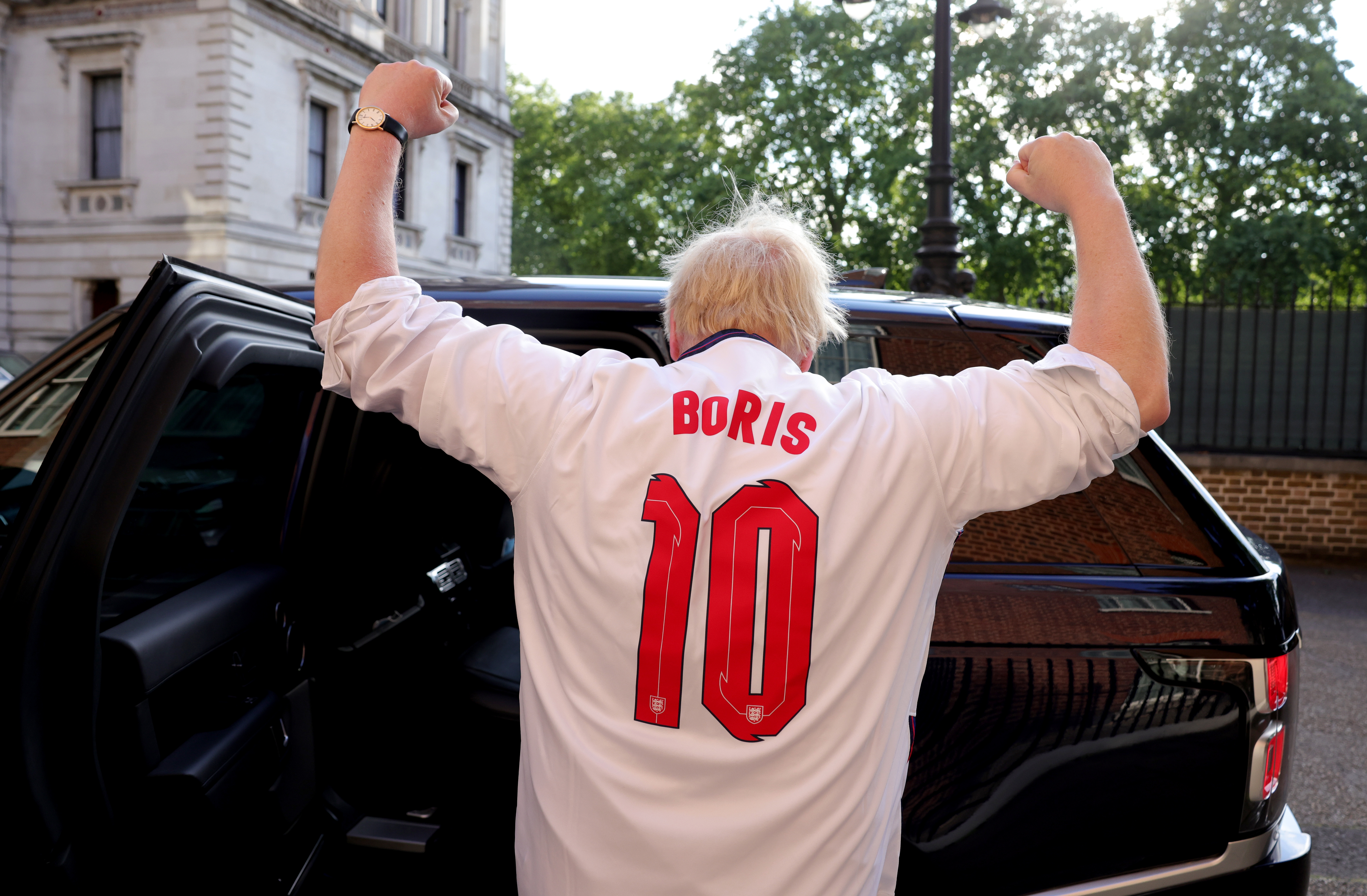Poor Robert Jenrick. This morning we learnt that, like the rest of the public, the housing secretary (and his department) is not signed up to the exclusive pilot scheme that was set to allow Boris Johnson and Rishi Sunak to skip quarantine. If Jenrick gets pinged, the rules will apply to him, just as they did to more than 500,000 people who were told by NHS Test and Trace to self-isolate in the first week of July.
Yet Jenrick still had to defend Johnson and Sunak on BBC One’s Andrew Marr show this morning, about an hour before Downing Street U-turned and announced they would self-isolate after all. It was a tough gig. Marr had no end of examples of businesses that are struggling to operate — Ruth Adams’s bathroom company in Bristol, major train operators up and down the country — due to the ‘pingdemic’. Why are they subject to the rules when ministers are not?
Jenrick didn’t have many answers — and the answers he did have only made the situation worse. The pilot, we’ve now learnt, applies to several public sector organisations, of which Downing Street conveniently is one of them. All within the rules, he said.
On this logic, the public should keep following the rules too: ‘Take [Test and Trace] seriously and follow the guidance’, Jenrick insisted, claiming that the system has so far helped to avoid hundreds of thousands of infections across the UK. If the government line as of 9:45 a.m. this morning was to be believed, we’re all simply doing our part: the Prime Minister, Chancellor and the public all in this together. Everyone’s obeying the rules: it’s just that what those rules are, and who they apply to, looks slightly different.
Everyone’s obeying the rules: it’s just that what those rules are, and who they apply to, looks slightly different
Johnson and Sunak rolled back on their decision not to isolate almost as quickly as it was announced. The outrage it sparked was akin to the Matt Hancock revelations that social distancing didn’t apply in his office. As Katy Balls notes on Coffee House, the fast U-turn may quell the political damage this time around. Yet it is becoming increasingly difficult to hide the double standards that exist for those inside Whitehall. The Prime Minister and Chancellor have decided not to use their exemption, but it was a choice on offer to them. Meanwhile, an estimated four million members of the public may be told to isolate in the coming weeks, despite the arrival of so-called ‘freedom day’.
To be furious is one thing, but to be surprised is another. The ‘one rule for them’ attitude has been in place throughout the pandemic, and especially on show during the third lockdown (as investigated by The Spectator last month). The ‘party elite’ designed the rules, and alongside them the loopholes and get-out clauses that have allowed ministers to carry on with many aspects of normal life, while the public is sat at home, isolated and often alone.
The scheme Johnson and Sunak are using is old news to Michael Gove: the cabinet secretary found his way onto a pilot programme after getting pinged on his return from the Champions League final in Portugal. I looked into the details of the scheme last month, curious as to how small businesses or the self-employed might find their way onto it as Gove did. Unfortunately, clear details have never been published regarding the 40,000 people who have access to it or how a business might sign up. And they’re still not: we found out more from Jenrick this morning about who qualifies (Transport for London and UK Border Force are included, apparently) than had ever been made public before. But Downing Street knew about it and got their ministers onto the scheme. A perk of making the rules: you know exactly where to look to get around them.
Today’s U-turn suggests that Downing Street may be waking up to this ‘one rule of them’ narrative — or, on a more cynical note, are growing increasingly nervous that the public has cottoned on to what’s been happening. Isolation rules are the tip of the iceberg. Ministers have been travelling the world, cramming into offices, attending so-called ‘trial events’ like the Brits (which in practice is a Westminster booze-up), singing and dancing the night away while there were still limits on how many family members could attend a funeral.
The parallel lifestyles continue. In the last month, trade minister Greg Hands was in Madrid and Prague on business. Zoom, it seems, was just not good enough.


Foreign minister Wendy Morton has been touring Turkey’s Hatay Archeology Museum, learning about the country’s ‘great historical and cultural legacy’ (another tour to add to her list, after roaming the Agora in Athens back in April, when it was still illegal for non-essential shops to open).

All vital government business, we’re meant to believe. Ministers are exempt not just from travel restrictions, but from quarantine upon return too (Hands tweeted out an update from transport secretary Grant Shapps between his trips about when the double-jabbed public would be granted the same privileges).

It’s a tough pill to swallow for all the single-jabbed young people coming back from Ibiza this week, who have just seen the island go ‘amber’ and will now be under temporary house arrest for the days to come.
Today’s self-isolation mayhem is terrible timing for the Prime Minister, as Isabel Hardman notes. He has spent the past week talking down ‘freedom day’ and urging caution from the public as Covid case numbers continue to rise. Yet it seems Johnson had no intention of taking his own advice — it wasn’t caution that brought about his U-turn but a growing public backlash that within a few hours made his decision not to isolate politically untenable.
What will the repercussions be? Is the public going to take isolation instructions as seriously as they might have done before this morning? (Getting contacted by NHS Test and Trace comes with a legal requirement to self-isolate but getting pinged the app does not). Will the caution the Prime Minister has been pushing for be thrown to the wind?
Or will No. 10 be forced to start carefully patrolling ministers’ activity to make sure it’s in line with what the public are allowed to do? You can’t help but feel from their behaviour over the past 16 months (and today is no exemption) that this is the outcome they’d dread most of all.








Comments